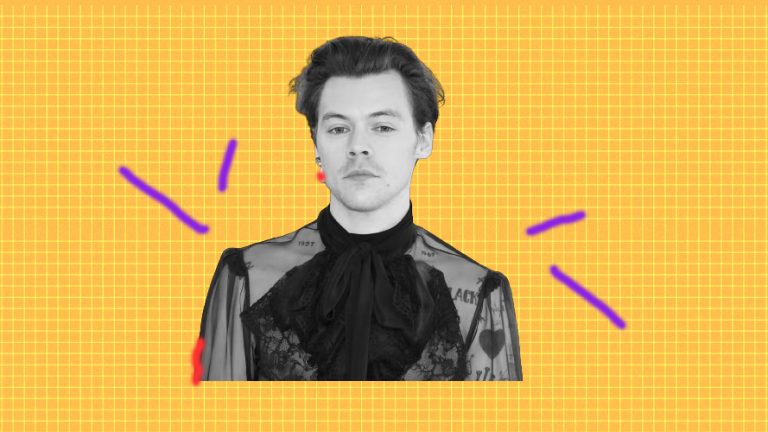Harry Styles was accused of co-opting queer same-sex for personal and artistic profit! Is it harmful?
In a Rolling Stone interview published yesterday, singer and actor Harry Styles addressed allegations of co-opting. Styles, who is well-known for wearing gender-fluid clothing in public, is set to star in a same-sex romantic drama later this year. Critics of Styles accuse him of co-opting queer same-sex for personal and artistic gain, assuming he is straight due to his public relationships with women. Meanwhile, queer people continue to struggle to openly express their gender and sexual identities, according to the criticism.
However, there’s something fishy about accusing someone of co-opting based on how they express themselves publicly. When it comes to public figures, we know very little about them other than what they share, with another, entirely private world at work that strangers aren’t privy to. If you accuse someone of queer-baiting, you may inadvertently force them to come out before they can express themselves freely.
A history of what the term means can help put this into context. Co-opting is commonly understood as the suggestive use of homoerotic tension between straight characters in fiction by writers and filmmakers to entice queer audiences starved of representation in mainstream storytelling to consume their art. Makers and writers hope to entice queer audiences to consume their content in this manner without alienating the vast majority of their straight fan base. To put it another way, it’s a type of media criticism that highlights the deceptive use of queer subcultures to sell art.
All of this while queer representation in media, particularly popular entertainment, remains deplorable. Earlier this year, Taika Watiti and Natalie Portman promoted their Marvel Cinematic Universe film Thor: Love and Thunder as a very gay film. Fans, however, were disappointed after seeing the film. Disney, Marvel’s parent company, is especially notorious for co-opting, despite having very few openly queer characters on screen. Screen representation can be a powerful tool for normalizing stories about marginalized communities. At the same time, luring marginalized audiences with the promise of representation is irresponsible, and continuing to do so in the face of repeated criticism simply sends a message to marginalized communities that their voices and experiences are unimportant.
This does not, of course, exempt someone like Harry Styles from scrutiny. Billy Porter, a black gay man known for his genderfluid fashion choices, criticized Styles for having it easy as a popular white man when he appeared in a Gucci dress on the cover of Vogue the first man to appear on it in December 2020. Although Porter and other openly queer people have long struggled to freely express their sexuality and fashion, it was Harry Styles who Vogue chose to represent as the face of the queer movement. But this isn’t queer-baiting; it’s a case of Styles’ white privilege allowing him to profit ahead of others who, in some cases, deserve to be there first.
When we talk about someone like Styles, we’re speculating on a real-life public figure who, despite what his celebrity status may suggest to stans, is not owned by anyone. Our parasocial relationship with a persona like him means nothing in terms of his right to privacy. A similar situation where some find Styles is co-opting is that the fact that he’s playing a gay character in Amazon’s My Policeman isn’t indicative of anything, nor does it call for more clarity: he’s an actor playing a role, and that reality is separate from his personal life. And, yes, this is true regardless of his crappy take on gay sex.
You might find it strange that the most famous man in the world refuses to explicitly state who he enjoys sex with, but that isn’t your problem: it’s his decision. Forcing toxic, openly anti-queer legislators out of the closet to demonstrate their wanton hypocrisy is one thing; expecting Harry Styles to come out on a hunch and labeling him a queerbaiter for not coming out is quite another.





Add comment